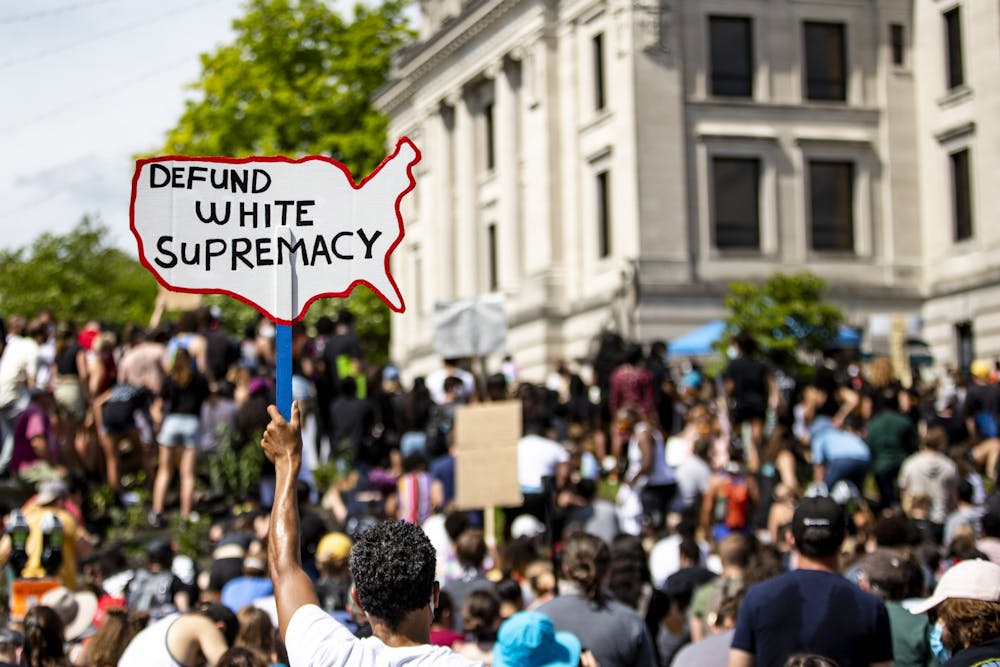IU alumnus Patrick Ford is tired of Black people being discriminated against because of the color of their skin. But the past month has been empowering and encouraging.
Following the killing of George Floyd by a Minneapolis police officer, Ford and other organizers including Selena Drake created the Enough is Enough group with a core mission to oppose systemic racism and call for long-overdue change.
Ford said it was heartwarming to have different people, not only minorities marching with him, supporting Black Lives Matter at the June 5 Enough is Enough march.
“This is one of the best times to be an African American,” Ford said. “I’m not saying it’s a great time, but for the first time, I feel like our voices are really starting to be listened to.”
Danielle Kilgo, former assistant professor at the Media School, said the core of the movement spurs from trauma and protests are a call for solidarity. But the Black community’s mental health can be further affected by the movement itself. Each person’s experience can have different effects on their mental health.
In an article from the Washington Post, following the video of George Floyd's killing, the percent of Black Americans screening positively for depression or anxiety rose from 36% to 41%. This increase represents about 1.4 million more Black people.
As an organizer, Ford said the protests have been empowering. But other organizers may be having different experiences. Kilgo said it might be disheartening to see peaceful protests end in arrests and violence, a scene that has played out across the country. At the same time she understands that after a long period of time of calling for justice and not receiving it, attitudes and actions may change.
“Reckoning with racism is difficult, and the sadness doesn’t go away in a day,” Kilgo said.
Denise Hayes, the director of CAPS at IU, said those who are protesting consistently may lose sleep or not eat, which is not good for anyone’s mental health. But Hayes said feeling seen and heard can have a positive effect and be empowering. Still, Kilgo said the movement goes beyond protesting.
Hayes and Kilgo each had suggestions on how to lift up the Black community other than through protests. Kilgo said reading books about racism can help people educate themselves and know how to support Black people. She said it’s important to remember that every institution, not just the police, battles racism. She said even after people forget about videos or protests, she thinks the movement will continue in government, workplaces and schools through the creation of anti-racist policies.
Ford said some of the most empowering things people can do for the Black community during this time are having awkward conversations and standing up for what is right.
“At some point, all these marches and protests will end. Our lives will go back to somewhat of a norm,” Ford said. “But if you’re out there holding a Black Lives Matter sign with us during a protest, don’t make that motion worthless afterwards.”
Hayes said there are a lot of materials and resources on how people can help and take responsibility. Ford said people have to go out and be willing to stand up for when people say something racist, even in the workplace.
He said if people want change, there has to be a continuous conversation. And although people may become discouraged, Hayes said that these types of cultural and societal changes take time.
“At the end of the day, if we’re screaming for help and we’re still getting beat, I mean, it only makes us angrier and makes us want to have this change happen faster,” Ford said.



